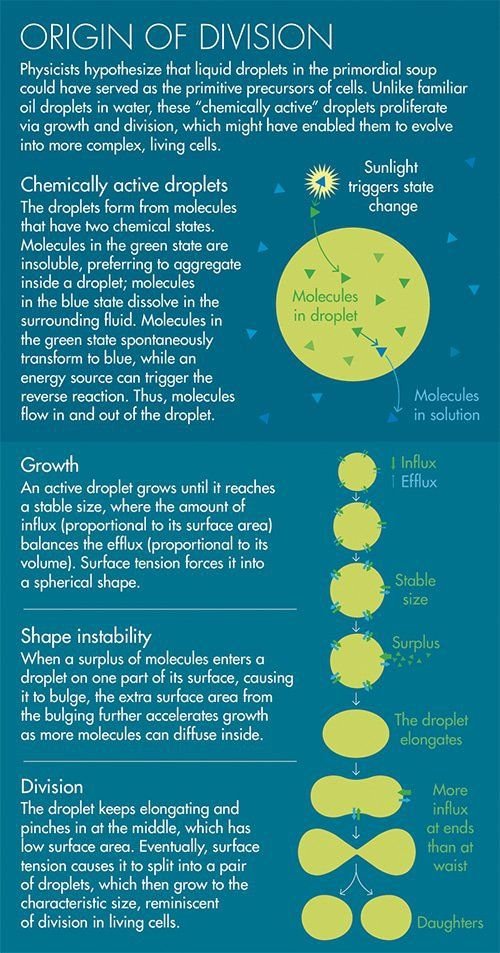Physicists and biologists in Germany are close to solving the mystery of cell division.
A new study is about to show why cell division occurred at the beginning of the existence of life. According to the journal Science Alert, a collaboration between physicists and biologists in Germany are close to solving the mystery of cell division.

The idea from where these researchers started, is based on a study from 1924 in which a Russian biochemist named Alexander Oparin says that the first living cell could evolve from liquid droplets of protocells. He believed that these protocells membranes act as containers without the chemicals that were concentrated reacting.
The team of researchers from the Max Planck Institute and from Cellular and Molecular Biology Institute, both from Dresden, started from the Oparin's hypothesis, analyzing physical droplets "chemically active". Unlike oil droplets "chemically inactive," which remain on the water surface and not increasing in size, the droplets they grew for themselves.
This behavior mimics cell division and may be based, and hence the basis for the emergence of life as we know it today. To test this hypothesis, the researchers studied physics centrosomes, a cellular organelle that is active in cell division. They concluded that the existence of a source of energy, these organelles are divided.
Frank Jülicher, co-author of the study said:
"In the context of early Earth, sunlight would be the driving force."
The lead researcher, David Zwicker added:
''It’s an explanation of how cells made daughters. This is, of course, key if you want to think about evolution."
Odarin splendidly believed that lighting strikes or geothermic activity on early Earth could’ve triggered these chemical reactions from the liquid protocells. According to Zwicker, this constant chemical inflow and outflow would solely counterbalance itself, once an explicit volume was reached by the active driblet, which might then stop growing.
The next step is to identify when these protocells developed the ability to transfer genetic information. Jülicher and his colleagues believe that somewhere along the way, the cells developed membranes, perhaps from the crusts they naturally develop out of lipids that prefer to remain at the intersection of the droplet and outside liquid.

As a form of protection for what’s inside the cells, genes could’ve begun secret writing for these membranes. However knowing something evidently still depends on additional experiments. So, if the terribly complicated life on Earth may have begun from one thing as apparently unnoticeable as liquid droplets, maybe a similar might be same of attainable extraterrestrial life?
The process itself took billions of years to happen, thus it’s not shocking we need some vital time to totally know it.
Thank you @hilarski! I appreciate it very much!
It seems that we have more bots who are downvoting all of us: @livemoral and @livehonest! They are using -100%! I just noticed, and I want to share it!
This is incredible! I imagine if there is a way to conciliate this with the "RNA world" hypothesis.
Yes, it is incredible! I don't know if there is a way to conciliate it with the RNA world. Today I discovered this article and I decided to share it!
Multidisciplinarity at work! :D
Yes, they are! Thanks for stopping by @lemouth! Have a great evening!
This post has been ranked within the top 80 most undervalued posts in the second half of Jan 31. We estimate that this post is undervalued by $6.93 as compared to a scenario in which every voter had an equal say.
See the full rankings and details in The Daily Tribune: Jan 31 - Part II. You can also read about some of our methodology, data analysis and technical details in our initial post.
If you are the author and would prefer not to receive these comments, simply reply "Stop" to this comment.
OK, thanks!
Exciting to to say the least.
:d Glad you like it! I appreciate your feedback!